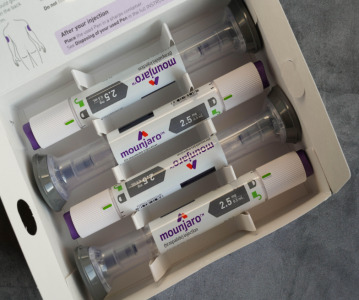NICE ‘no’ for Opdivo, could deny some lung cancer patients one of the most significant advances in almost 20 years

The draft decision specifically affects adult patients with locally advanced or metastatic squamous non-small cell lung whose disease has progressed after prior chemotherapy.
Bristol-Myers Squibb (BMS0 has announced that the National Institute for Health and Care Excellence (NICE) has issued draft guidance for consultation that could prevent NHS patients with a form of lung cancer, from receiving Opdivo (nivolumab). The draft decision specifically affects adult patients with locally advanced or metastatic squamous non-small cell lung (NSCLC) whose disease has progressed after prior chemotherapy. In a pivotal clinical study, treatment with nivolumab was shown to achieve significantly superior survival rates, with 42% of patients still alive at one year compared with 24% of those treated with docetaxel. If this becomes final guidance, it will mean that treatment options for these patients will remain limited to chemotherapies, such as docetaxel which was first approved for use 17 years ago. Lung cancer is one of the UK’s biggest health challenges, with survival rates that lag almost a decade behind some European countries.
Johanna Mercier, General Manager, Bristol-Myers Squibb UK & Ireland, said: “Today’s draft decision is deeply disappointing for lung cancer patients and for us as we have worked extensively with the UK Health Authorities to enable prompt patient access to nivolumab. We have made this pioneering medicine available both through our clinical trial programme and through the Early Access to Medicines Scheme. We are continuing to work with NICE to facilitate access for patients who urgently need it.”
Nivolumab is the first in a new class of medicines, called PD-1 immune checkpoint inhibitors, to be licensed for use in squamous pre-treated lung cancer patients. It has an innovative mode of action that works by harnessing the ability of the immune system to find and fight cancer.
Related News
-
News The next 15 drugs up for negotiation with Medicare include several blockbusters
By now, everyone is quite familiar with the drug price negotiations taking place between drug companies and the Centres for Medicare & Medicaid Services (CMS) in the USA as part of measures being taken to reduce the cost of drugs for patients, to make ... -
News PSCI Welcomes Delpharm, Samsung Biologics, and Suven as First Supplier Partners
The pharmaceutical industry continues to evolve with an increasing focus on responsible sourcing, sustainability, and collaboration across the supply chain. Under a new model to recognise suppliers within the pharmaceutical and healthcare industry that... -
News Drug prices agreed upon as part of the US Inflation Reduction Act
The Inflation Reduction Act brought into constitution by the Biden administation in 2022, which proposed a drug price negotiation between the government and pharmaceutical companies, has reached it's first agreement. -
News Eisai Alzheimer’s drug authorised in UK but still faces obstacles
In partnership with BioArctic AB, pharmaceutical company Eisai has been granted Marketing Authorisation by the Medicines and Healthcare products Regulatory Agency (MHRA) for its Alzheimer’s disease drug product Leqembi. -
News Eli Lilly's weight loss drugs removed from the FDA's shortage list
The US FDA have recently updated their drug shortage list. The recently released list shows that all dosage forms of Eli Lilly's weight-loss drug Zepbound and their diabetes drug Mounjaro are now available. -
News Global advancements in the diagnosis and treatment of rare diseases: Rare Disease Day 2024
Rare Diseases Day is celebrated on the 29th February 2024 and represents the plight of rare disease patients to gain diagnosis and access to suitable treatment. -
News Pharmaceutical industry supports COP28 health stance in joint statement
As COP28 takes place over this week in Dubai, UAE, several bodies in the pharmaceutical and health industries have come together to announce support of key movements in sustainability in the sector, and to recognise sustainability as a health issue.&nb... -
News Biden backs Cold-War measures to shore-up medical supply chains
In a recent strategy to combat rising inflation and the cost of living crisis, President Joe Biden has invoked a Cold War-era act to increase investment in a selection of medicines and supplies.
Recently Visited
Position your company at the heart of the global Pharma industry with a CPHI Online membership
-
Your products and solutions visible to thousands of visitors within the largest Pharma marketplace
-
Generate high-quality, engaged leads for your business, all year round
-
Promote your business as the industry’s thought-leader by hosting your reports, brochures and videos within your profile
-
Your company’s profile boosted at all participating CPHI events
-
An easy-to-use platform with a detailed dashboard showing your leads and performance



.png)



